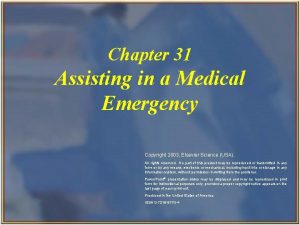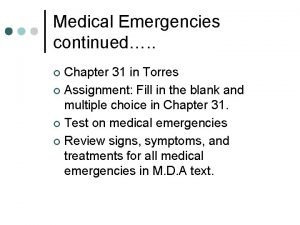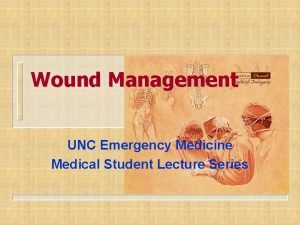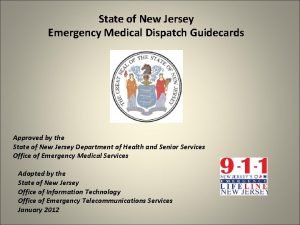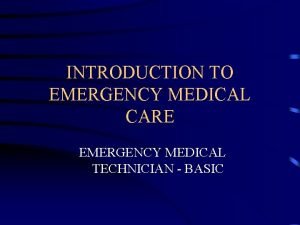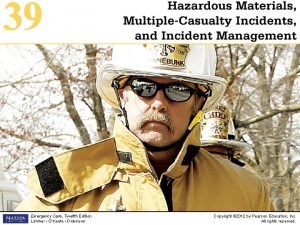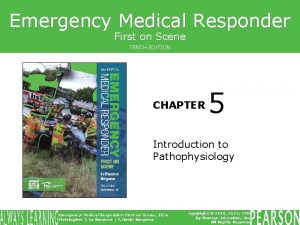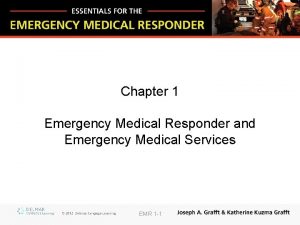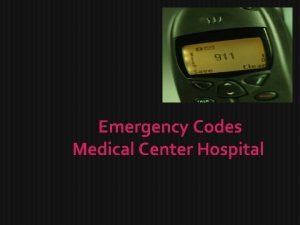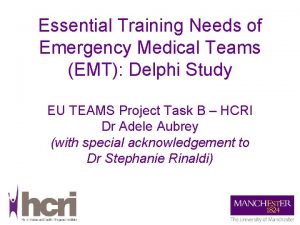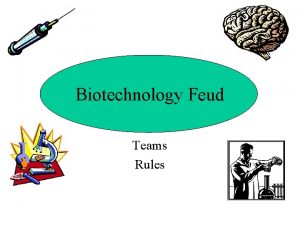TEAMS TRAINING FOR EMERGENCY MEDICAL TEAMS AND EUROPEAN










- Slides: 10


TEAMS TRAINING FOR EMERGENCY MEDICAL TEAMS AND EUROPEAN MEDICAL CORPS Luca Ragazzoni, MD, Ph. D Project Coordinator CRIMEDIM - Research Center in Emergency and Disaster Medicine

The ‘Emergency Medical Teams’ (EMTs) initiative evolved in 2010 under the umbrella of the WHO, the Global Health Cluster and other actors, with the aim to improve the quality and accountability of international emergency medical teams responding to disasters. In 2013, the EMT Working Group published a first edition of the ‘Classification and minimum standards for Foreign Medical Teams in sudden onset disasters’, in which capacities, services and minimum deployment standards for EMTs were defined.


EMT COMPETENCY AREAS Amat Camacho N, Hughes A, Burkle FM, Ingrassia PL, Ragazzoni L, Redmond A, Norton I, von Schreeb J. Education and Training of Emergency Medical Teams: Recommendations for a Global Operational Learning Framework. PLo. S Curr. 2016 Oct 21; 8.

THE PROJECT TEAMS is a project, funded by the European Union Humanitarian Aid and Civil Protection (DG ECHO), aiming to develop, pilot and assess a standardized training package (set of simulation exercises), focused on operational team training (team dynamics) for EMCs/EMTs, adaptable to different types of EMCs/EMTs. Specific aims: 1) To create a training framework focused on operational team training for EMCs/EMTs. 2) To develop teaching materials and identify effective training methods. 3) To implement a low-cost e-learning platform to facilitate the delivery of the teaching materials that is sustainable beyond the project. 4) To design a cost-effective set of simulation-based immersive scenarios for training EMCs/EMTs and facilitating quality assurance of these teams. 5) To pilot the overall training package through two main training events. 6) To assess the effectiveness of the training in terms of learning outcomes, participants’ satisfaction, improvement in technical and non-technical skills of the teams trained and cost-effectiveness. 7) To evaluate the quality of the training package.

METHODOLOGY AND TIMELINE Task B. Analysis of situation and definition of training framework HCRI - 6 months KI - 9 months Task C. Development of teaching materials and evaluation tools UPO - 10 months Task D. Development of training tools and simulation scenarios TAU – HUM – IMU - 15 months Task E. Pilot and assessment January 2017 July October 2018 March April December 2018

MAIN CARACTERISTICS OF THE TRAINING PACKAGE • Set of 8 team dynamics exercises, based on a curriculum framework developed through a scientific methodology. • Characteristics: • • • Special focus on health-related exercises Scenario based No need for external trainers: this is an EMT self- delivered training package. Build upon EMT minimum standards Based on the own EMT procedures and equipment The learning objectives should not focus on the technical aspects (i. e triage) but on the team’s performance in terms of team dynamics.

SUSTAINABILITY AND CONTINUATION The online training package will be available free of charge after the end of the project to allow continuing access to and the usability of the teaching and training materials by the final beneficiaries all over the world. The online platform will be developed with a capacity to be easily accessible from all over the world and to be maintained with no cost over time. The consortium takes the responsibility for the quality assurance and evaluation mechanism of each training delivered by using the TEAMS training package through an online assessment methodology.

Thank you.
 Emergency medical responder first on scene 10th edition
Emergency medical responder first on scene 10th edition American red cross first responder
American red cross first responder Introduction to emergency medical care
Introduction to emergency medical care Chapter 31 assisting in a medical emergency
Chapter 31 assisting in a medical emergency Define medical emergency chapter 31
Define medical emergency chapter 31 Medical emergency student lectures
Medical emergency student lectures Emd guidecards
Emd guidecards Non emergency medical transportation dallas tx
Non emergency medical transportation dallas tx Introduction to emergency medical care
Introduction to emergency medical care Medical
Medical Emergency medical responder first on scene 10th edition
Emergency medical responder first on scene 10th edition



